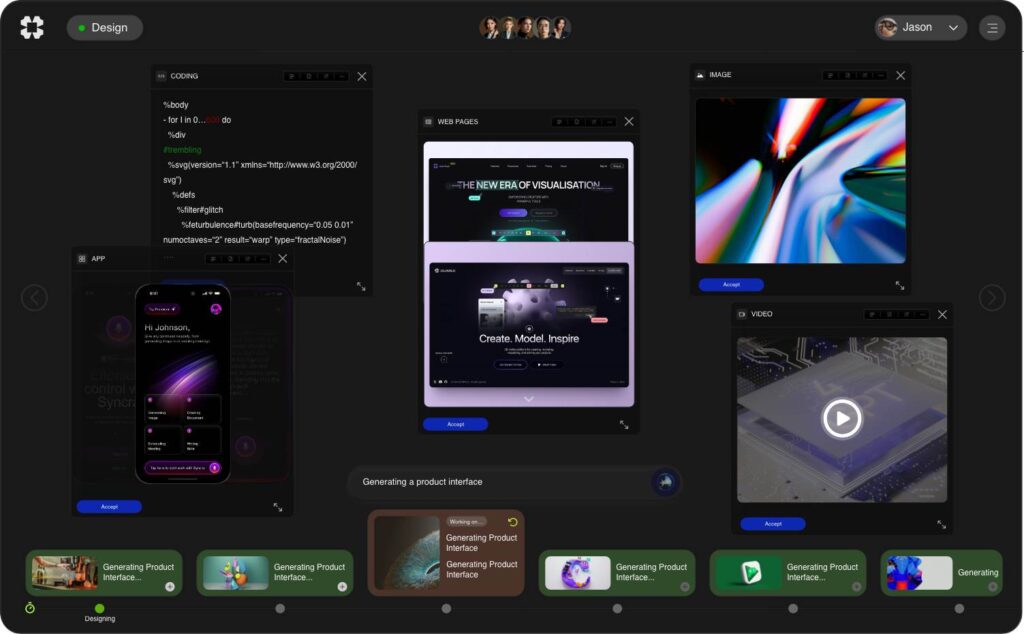In the ever-evolving landscape of the Internet of Things (IoT), the need for efficient resource management is more critical than ever. As the number of connected devices continues to grow, solutions that can intelligently allocate resources while ensuring optimal performance are in high demand. One promising innovation that has emerged in this domain is the Modular Artificial Intelligence Operating System (AIOS) for IoT. This article explores the current trends, solutions, and applications of Modular AIOS in the realm of IoT, focusing on intelligent resource allocation and its impact on various industries.
.
**The IoT Challenge: Resource Management in a Connecting World**
The IoT ecosystem comprises interconnected devices, sensors, and systems designed to communicate and share data, creating a vast network of hardware platforms and applications. However, managing the resources required to keep this network running smoothly presents unique challenges. The diverse array of devices, ranging from simple sensors to complex machines, often leads to resource competition, inefficiencies, and latency issues.
In this context, intelligent resource allocation becomes crucial. The goal is not just to distribute resources effectively but to do so in a self-optimizing manner that anticipates demand based on real-time data analytics. Modular AIOS aims to provide such capabilities by allowing seamless management and distribution of resources across various IoT applications.
.
**What is Modular AIOS for IoT?**
Modular AIOS is an advanced operating system specifically designed for the IoT ecosystem. Distinct from traditional operating systems, which are built as monolithic infrastructures, Modular AIOS takes a flexible and adaptive approach. It consists of modular components that can be integrated, customized, and scaled according to specific requirements.
This modular structure enables different IoT applications to utilize only the resources they need, thereby enhancing efficiency. For instance, a smart factory may require more processing power for data analytics during peak hours while using fewer resources during off-peak hours. With Modular AIOS, the system can dynamically allocate CPU, memory, and storage based on real-time needs, allowing for optimal resource management.
.
**Intelligent Resource Allocation: The Key to Efficiency**
Intelligent Resource Allocation in Modular AIOS incorporates advanced algorithms and AI/ML models that analyze data from connected devices and systems. These algorithms can predict resource demands and dynamically allocate resources, ensuring that devices function optimally without human intervention.
For example, in a telehealth application, wearable devices continuously monitor a patient’s health metrics. During critical assessments, these devices may require increased bandwidth and processing power to transmit data reliably. The AIOS can recognize this spike in demand and preemptively allocate additional resources, ensuring smooth and uninterrupted service.
Moreover, this intelligent allocation reduces energy consumption. By only mobilizing resources when necessary and optimizing resource distribution, Modular AIOS can significantly decrease energy waste, contributing to a more sustainable IoT ecosystem.
.
**Trends Shaping the Future of Modular AIOS in IoT**
As IoT technology develops, several trends are shaping the deployment and usage of Modular AIOS for intelligent resource allocation:
1. **Increased Adoption of Edge Computing**: With the rising importance of edge computing, Modular AIOS can facilitate localized processing of data close to the source. This will minimize latency and enable faster decision-making, essential for applications requiring real-time data processing, such as autonomous vehicles.
2. **Focus on Security and Privacy**: IoT devices are often targets for cyber-attacks. Modular AIOS with intelligent resource allocation can prioritize security updates and allocate resources to safeguard data, enhancing the overall security posture of an organization’s IoT landscape.
3. **Interoperability between Devices**: The diverse nature of IoT devices often leads to communication issues. Modular AIOS enhances standardization and compatibility across devices, ensuring effective resource allocation regardless of device type.
4. **AI-Driven Predictive Maintenance**: Companies are increasingly leveraging AI for predictive maintenance in industrial settings. By using Modular AIOS to allocate resources based on predictive analytics, organizations can preemptively address equipment failures, minimizing downtime and maximizing operational efficiency.
.
**Industry Applications of Modular AIOS**
The applications of Modular AIOS for IoT are wide-ranging, with numerous industries poised to benefit from intelligent resource allocation:
1. **Smart Manufacturing**: In the manufacturing sector, Modular AIOS can optimize resource allocation for machinery, ensuring that production lines operate smoothly without costly interruptions. For instance, if a piece of equipment requires extensive data analysis to optimize performance, AIOS can temporarily allocate more processing power to that machine during its operational cycle.
2. **Transportation and Supply Chain**: Logistics companies can leverage Modular AIOS to monitor and optimize fleet operations. Intelligent resource allocation can redirect trucks in real-time based on traffic conditions, ensuring timely deliveries while reducing fuel consumption.
3. **Healthcare**: In healthcare, Modular AIOS can enhance patient care through intelligent allocation of resources in systems using telemedicine and remote monitoring. By anticipating patient needs based on data trends, healthcare providers can ensure adequate resources are available without overwhelming the system.
4. **Agriculture Technology**: IoT devices in agriculture can monitor soil conditions, crop health, and weather patterns. Modular AIOS can allocate resources for irrigation and nutrient delivery systems based on real-time analytics, optimizing yields while conserving water and fertilizer.
.
**Technical Insights: The Working Mechanism of Modular AIOS**
The mechanism of Modular AIOS relies heavily on data and analytics for intelligent resource allocation. Here are some key technical components:
1. **Real-Time Data Analytics**: Modular AIOS continuously collects and analyzes data from connected devices. This data serves as the backbone for making informed decisions regarding resource allocation.
2. **Adaptive Algorithms**: These algorithms use machine learning techniques to predict future resource demands based on historical data trends and current conditions, adjusting allocations dynamically.
3. **Feedback Loops**: The system incorporates feedback loops that enable the continuous refinement of resource allocation strategies, adapting to changing demands and optimizing performance over time.
4. **Integration Capabilities**: Modular AIOS is built to integrate seamlessly with existing IoT frameworks, ensuring broad applicability across various industries and use-case scenarios.
.
**Conclusion: The Future of IoT with Modular AIOS and Intelligent Resource Allocation**
As IoT continues to expand and influence numerous sectors, the role of Modular AIOS in enabling intelligent resource allocation will become increasingly important. The ability to adapt resources dynamically based on real-time analysis will not only enhance performance but also drive efficiency, sustainability, and security in IoT applications.
Organizations that embrace Modular AIOS for IoT will find themselves better equipped to navigate the complexities of a connected world, leveraging technology to optimize operations while reducing costs. As innovations in AI and machine learning progress, the potential for Modular AIOS in transforming IoT into a more intelligent, resource-efficient framework will be limitless.
In this ongoing evolution, stakeholders must remain focused on developing and refining solutions that address the unique demands of their industries. The convergence of AI, IoT, and intelligent resource allocation through Modular AIOS represents a promising frontier of innovation poised to reshape our world.
**Sources:**
1. “The Future of IoT: A comprehensive strategy for success” (Gartner, 2023)
2. “AI-Driven Resource Allocation in IoT Networks” (IEEE Xplore, 2023)
3. “Modular AIOS for Intelligent Enterprises” (McKinsey & Company, 2023)
4. “Energy-Efficient IoT Solutions: Trends and Opportunities” (Deloitte Insights, 2023)



























